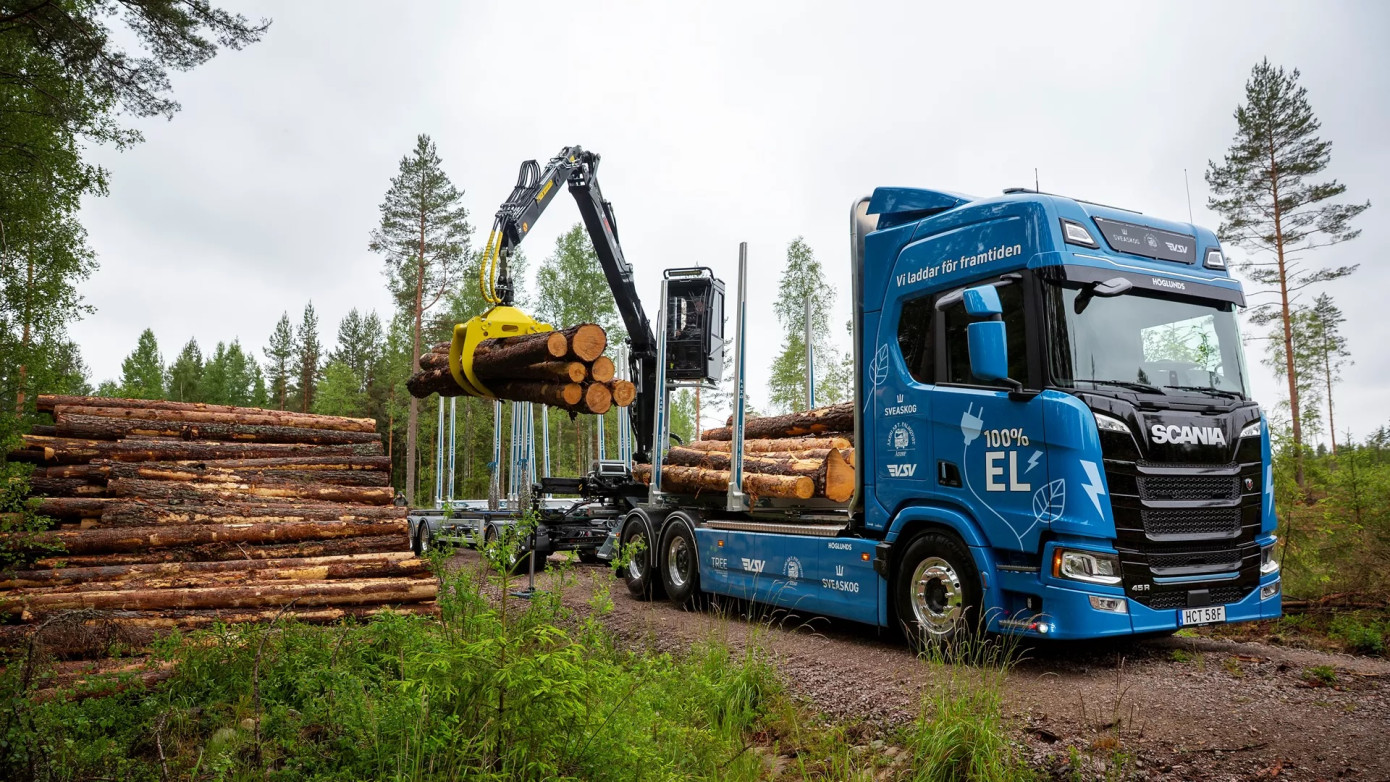Sveaskog has deployed a new fully electric log truck equipped with a crane in southern Sweden in cooperation with VSV Unite and Åkeri AB Tage Palmqvist under the TREE project. The vehicle will operate between Värmland and Närke, where Sveaskog manages extensive forest holdings and serves multiple nearby customers. The initiative targets reduced fossil fuel use in forestry transport, according to Sveaskog.
Transport accounts for a large portion of carbon dioxide emissions in the forestry sector. Sveaskog and its partners are addressing this by combining alternative fuels such as HVO and biogas with development of longer and heavier vehicles, alongside electrification. The new electric log truck is intended to help overcome specific challenges related to rural operations, including poor road conditions and limited charging infrastructure.
The truck will become part of the regular transport fleet. Data from daily use will help identify its advantages and limitations in areas such as route planning, work methods, and business models. Sveaskog aims to determine where the electric truck delivers the greatest benefit and how it integrates into long-term operations.
VSV Unite will support the project by supplying additional trucks for testing and contributing skilled staff to TREE project working groups. The company sees its role as advancing efficient logistics and maintaining delivery standards comparable to conventional vehicles while participating in the shift to fossil-free transport.
Åkeri AB Tage Palmqvist, a local haulier that has handled Sveaskog’s timber for several generations, will manage daily operations of the truck. The company will contribute on-the-ground experience to the broader evaluation of the vehicle’s performance.
The TREE project began in 2023 with the goal of scaling up a functioning electric heavy transport system within the forestry sector through technical and operational innovation. The electric log truck deployed in southern Sweden is the first of two electric vehicles Sveaskog plans to introduce. The second vehicle will begin operations later this year in northern Sweden, where performance under winter conditions and over longer distances will be evaluated.
